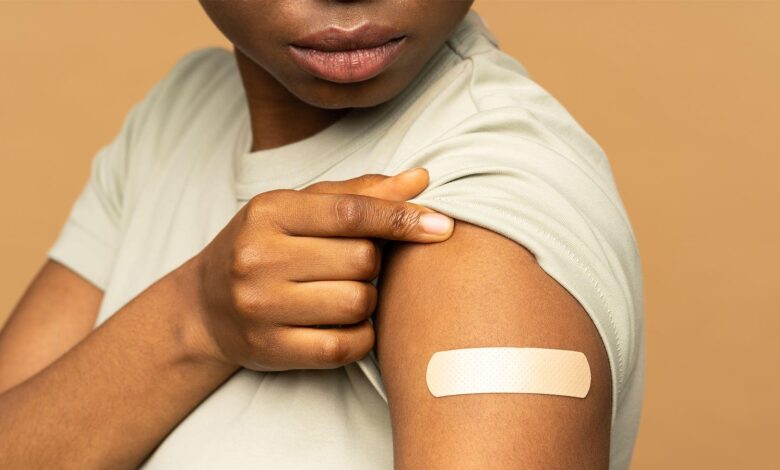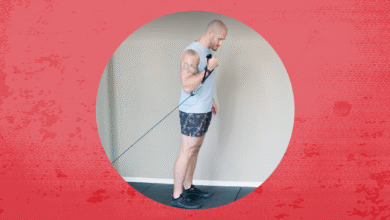Study Pinpoints Factors Driving COVID Vaccine Hesitancy Among Black Women

—
Government mistrust persists, certain promotion tactics also seen as exploitive, coercive
by
Shannon Firth, Washington Correspondent, MedPage Today
January 9, 2025
Three main factors contributed to COVID vaccine hesitancy among Black women, according to a qualitative study using interviews conducted in 2021.
Among the 54 Black women interviewed, three primary themes emerged: mistrust in healthcare and government due to past medical exploitation; concerns about vaccine safety and long-term effects, especially relating to reproductive health; and “ineffective and coercive” communication about and promotion of the vaccine, reported Brittany C. Slatton, PhD, of Texas Southern University in Houston, and co-authors.
“Participants expressed deep-rooted skepticism about being treated as ‘expendable’ in medical research, fears about the rapid vaccine development process, and frustration with coercive vaccine advertisements,” they wrote in JAMA Network Open.
This mistrust is not unfounded, given Black Americans’ deplorable experience with historical medical exploitation, with examples including the Tuskegee Syphilis Study and the case of Henrietta Lacks, the authors noted.
“What stood out was the strong negative reaction to financial incentives and celebrity-driven vaccine promotion, which participants viewed as manipulative and disrespectful. Rather than being targeted with these promotional strategies, participants preferred clear, scientific information about vaccine safety and mechanisms,” Slatton told MedPage Today.
One participant cited the example of a well-known rapper who altered his song lyrics as part of a vaccination campaign.
“Juvenile did an ad and … it was called ‘Vax that thing up’ like [the song] ‘Back that thing up’ … they are really trying to appeal to the African American community … they were just like really shoving it down our throats,” the participant said.
Another participant voiced disgust over financial incentives being leveraged to encourage vaccination.
“I just had a paper on my door talking about you could win a million dollars in the lottery if you get this COVID vaccine … I live on the east side and there is poor Black people in this area,” she said. “Everyone’s gonna sign up. I think it’s sick.”
Another participant noted that the reason the vaccine is “a complete turn off to me is because of the history of vaccinations in the African American community. These were basically used as poison for us. That’s why I’m anti-vaccination … I never like the fact that we [African Americans] are always the … lab experiment, the testing community for these vaccinations.”
As for reproductive concerns, one participant said she was told by the pharmacist administering her vaccine “that it would affect your cycle … But they just figured that out, so not many people know about it.”
Prior research has suggested that Black women are more vaccine-hesitant than Black men. A 2021 analysis showed that 19% of Black women said they would definitely refuse a COVID vaccine compared with 7% of Black men.
“Black women’s unique intersectional experiences with racial and gender discrimination in healthcare reflect distinct lived experiences shaped by historical and contemporary mistreatment in medical research and healthcare practices,” Slatton said, noting that such experiences and the barriers they’ve created warrant greater attention.
“Additionally, Black women serve as primary healthcare decision-makers for their families, making their vaccine attitudes particularly influential in community-wide vaccination efforts,” she added.
For future vaccination messaging, the authors recommended communication strategies that focus on “prioritizing education over coercion and addressing the specific concerns Black women raised in this study.”
“Engaging trusted community leaders, acknowledging historical medical exploitation, and leveraging personal stories to counter misinformation and build trust are essential steps toward reducing hesitancy,” they wrote. “Providing transparent information about vaccine development, safety, and long-term effects, particularly addressing concerns about reproductive health, is crucial.”
For this study, 54 Black women ages 21 to 66 were recruited through social media and “word-of-mouth referrals.” Of these participants, 75.9% lived in the South, and 75.9% had a bachelor’s degree or higher. About 30% earned between $40,000 and $59,999 annually, and 14.8% earned $80,000 or more. Nearly 60% had no children.
The in-depth, semi-structured interviews were conducted virtually from June to November 2021. Participants received a $25 incentive for their time. Conversations consisted of open-ended questions and follow-up questions to elicit more explanation. Slatton and an external reviewer independently read and coded the data and identified potential themes.
“The study’s main limitation was the predominance of Southern participants and the homogeneity of the sample in terms of education level,” noted Slatton. The team also did not collect data on pregnancy status or intention to conceive.
“Future studies would examine potential connections between Black maternal mortality rates and vaccine hesitancy, exploring how reproductive healthcare experiences may influence Black women’s perspectives on preventive medical care,” she said.
-
![author['full_name']](https://clf1.medpagetoday.com/media/images/author/shannonFirth_188.jpg)
Shannon Firth has been reporting on health policy as MedPage Today’s Washington correspondent since 2014. She is also a member of the site’s Enterprise & Investigative Reporting team. Follow
Disclosures
The study was funded by a grant from the Urban Institute to Slatton.
The authors reported no conflicts of interest.
Primary Source
JAMA Network Open
Source Reference: Slatton BC, et al “COVID-19 vaccine hesitancy among Black women in the US” JAMA Netw Open 2025; DOI: 10.1001/jamanetworkopen.2024.53511.



